The next day Jesus decided to leave for Galilee. Finding Philip, he said to him, “Follow me.”
Philip, like Andrew and Peter, was from the town of Bethsaida. Philip found Nathanael and told him, “We have found the one Moses wrote about in the Law, and about whom the prophets also wrote—Jesus of Nazareth, the son of Joseph.”
“Nazareth! Can anything good come from there?” Nathanael asked.
“Come and see,” said Philip. –John 1:43-46 (NIV)
“West Virginia! Can anything good come from there?”
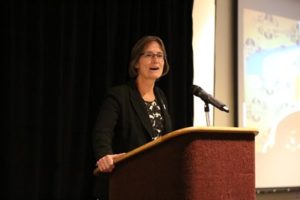 It’s a fair question. After all, we seem to be known outside our borders (and often inside as well) more for our problems than for our promise.
It’s a fair question. After all, we seem to be known outside our borders (and often inside as well) more for our problems than for our promise.
And it’s true that when we look across the broad scope of the church for signs of revival, we’re often tempted to look to the major centers of activity—Atlanta, 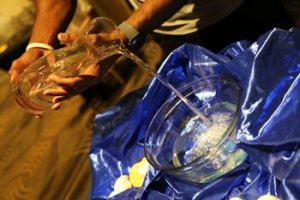 maybe, or Dallas. Perhaps other urban centers like New York or Washington. Or Portland. Or Rome.
maybe, or Dallas. Perhaps other urban centers like New York or Washington. Or Portland. Or Rome.
But Jesus started his ministry in Galilee, not Jerusalem.The early church rose up in places
like Antioch and Corinth and Thessalonica before she put down roots in the empire’s capitol. The Wesleys’ movement caught fire in the towns and villages of the English countryside, and later on the American frontier.
God chose unlikely characters like Abraham and Moses, Isaac and Jacob, Ruth, Esther, and the shepherd boy David to carry his Kingdom agenda forward. Rahab the prostitute sits alongside Solomon the Wise in Jesus’ lineage. An unwed carpenter and his young fiancé brought a savior into the world in a manger.
So why not West Virginia?
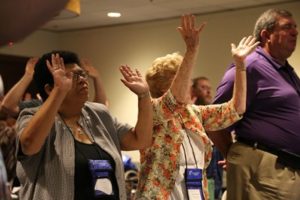 Gathered in Charleston with United Methodists from across our Annual Conference for the Bishop’s Summit on Diversity and Inclusion on September 16 and 17, that was the recurring thought that kept creeping into my mind. Could it be, maybe, that our little state, despite our generally perceived lack of remarkability, might spark something truly remarkable that could spread across our connection?
Gathered in Charleston with United Methodists from across our Annual Conference for the Bishop’s Summit on Diversity and Inclusion on September 16 and 17, that was the recurring thought that kept creeping into my mind. Could it be, maybe, that our little state, despite our generally perceived lack of remarkability, might spark something truly remarkable that could spread across our connection?
To be in that Holiday Inn conference room with some 130 women and men, laity and clergy, from big cities and unincorporated towns, from churches large and small, representing a variety of racial and cultural origins, one got the idea that it might just be possible.
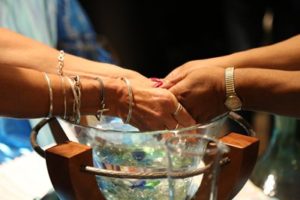
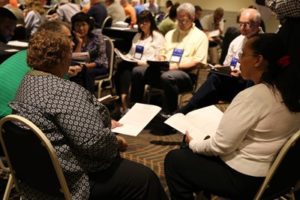
As we worked through the plenary sessions under the guidance of Rev. Giovanni Arroyo and Rev. E. Michelle Ledder, a sense of possibility began to rise in my spirit. Beginning with exercises aimed at raising self-awareness and identifying hidden implicit biases, our work began to reveal not only the ways we often unintentionally exclude and marginalize others, but also the steps we could begin to take toward embracing our diversity and becoming more fully inclusive.
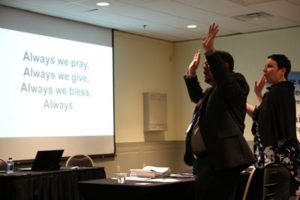 If seeds were sown in the workshops, they were nourished in the waters of intercultural worship. Raising our voices in song and hearing scripture read in a multitude of languages, the Holy Spirit was set free among us without constraint as our Bishop, Sandra Steiner Ball, reminded us of the simplicity of our task from Micah 6:8 – to act justly by uncovering our implicit biases, to love mercy through acts of unexpected kindness, and to walk humbly with our God, knowing God sees us all through the lens of love and acceptance.
If seeds were sown in the workshops, they were nourished in the waters of intercultural worship. Raising our voices in song and hearing scripture read in a multitude of languages, the Holy Spirit was set free among us without constraint as our Bishop, Sandra Steiner Ball, reminded us of the simplicity of our task from Micah 6:8 – to act justly by uncovering our implicit biases, to love mercy through acts of unexpected kindness, and to walk humbly with our God, knowing God sees us all through the lens of love and acceptance.
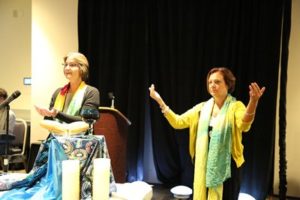 So why not West Virginia? It seems God delights in using the least likely people and places to accomplish the most powerful Kingdom movements. Perhaps our back roads and back woods will be just the places where generational prejudices break down and radical love rises up.
So why not West Virginia? It seems God delights in using the least likely people and places to accomplish the most powerful Kingdom movements. Perhaps our back roads and back woods will be just the places where generational prejudices break down and radical love rises up.
West Virginia! Can anything good come from there? Come and see!
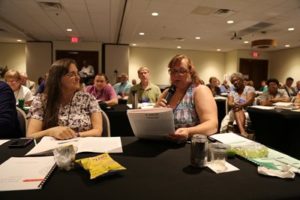
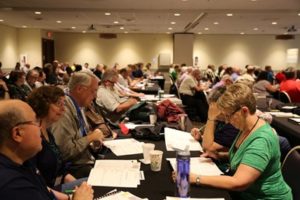

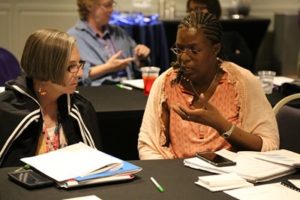
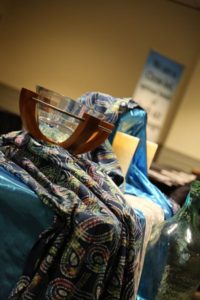
By Rev. Joe Webb, Sand Hill UMC